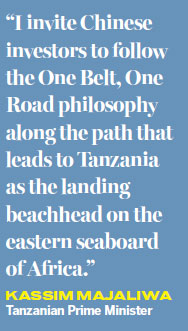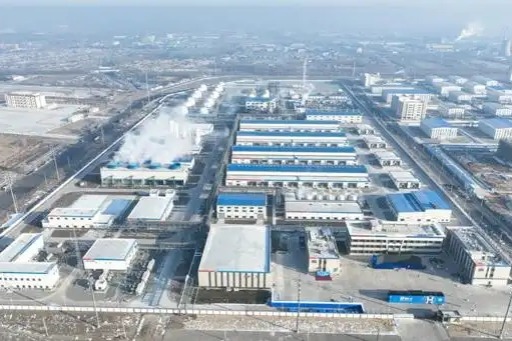Private investors from China expanding African beachhead

Unlike two decades ago, when Africa was dominated by Western investors - perhaps due to the ties forged in colonial times - today many Asian countries, led by China, have muscled their way into the continent and are thriving.
In many parts of Africa, the wide range of up-and-coming Chinese businesses, from manufacturers of food products, textiles and shoes to restaurants, tour firms, wholesale and retail centers, have become an everyday sight.
According to the World Bank, by the end of 2011 the private sector had registered 923 projects in Africa, representing 55 percent of all Chinese outbound foreign direct investment (OFDI) projects on the continent.
About 36 percent of the private projects are in manufacturing, with 22 percent in the service sector.
Data from the Chinese Ministry of Commerce show that OFDI projects, both state-owned and private enterprises, are widely spread across 44 countries in Sub-Saharan Africa. The top five recipient countries are Nigeria, South Africa, Zambia, Ethiopia and Ghana, making up to 40 percent of all projects in the region. The second tier of countries includes Tanzania, Angola, Sudan and Kenya.
African governments are happy with the increased private-sector investments as they seek to attract Chinese money to their countries and hope to spur employment and achieve industrialization.
Samson Wangusi, senior deputy secretary of Kenya's State Department for Trade, says the country presents investment opportunities that Chinese investors should take advantage of.

"Kenya presents investment opportunities in energy, construction, manufacturing, agriculture, water and irrigation, transport, infrastructure, information technology, mining and tourism. We invite Chinese investors to venture into these sectors," he says.
Wangusi says Kenya is open and safe for business, noting that it has put in place friendly reforms that are attractive to investors.
Inspecting Tooku Garments Co, a Chinese venture in the Benjamin William Mkapa Special Economic Zone in Dar Es Salaam in December, Tanzanian Prime Minister Kassim Majaliwa said, "I invite Chinese investors to follow the One Belt, One Road philosophy along the path that leads to Tanzania as the landing beachhead on the eastern seaboard of Africa."
According to Ghana's Ministry of Trade and Industry, the government is interested in attracting Chinese investment into the industrial sector, where there are considerable growth opportunities.
A news release from the ministry said the government has put in place an industrial policy with clear and transparent guidelines for the implementation of its industrial development agenda, with particular emphasis on the growth, diversification, upgrading and competitiveness of the manufacturing sector.
"Chinese investment is needed in these areas, to add value by processing primary products into industrial products," the release said.
Many other African countries are making such calls. The number of Chinese private-sector players focusing on the market is growing by day.
The private firms may find relief in Africa's large markets and relatively less intense market competition from local firms. Low production costs, especially cheap labor, are another factor attracting Chinese manufacturing companies to the continent.
In Ethiopia for instance, entry-level salaries for workers in the textile industry range from $35 to $40 per month, lower than the average wage of $500 in the Chinese textile sector, according to dw.com.
Availability of raw materials is another factor, attracting Chinese companies, especially those in agriculture-based light industries.
Africa has large quantities of natural resources, including diamonds, salt, copper, gold, iron, bauxite, cobalt, silver, uranium, petroleum and cocoa beans. This is in addition to woods and tropical fruits.
However, despite the cheap labor and raw materials, a World Bank survey titled Private Chinese Investment in Africa: Myths and Realities, states that overall operating costs are high in Africa, especially where infrastructure is poor and security concerns are significant. This is in addition to scarce electricity.
edithmutethya@chinadaily.com.cn
(China Daily Africa Weekly 02/24/2017 page27)
Today's Top News
- Experts: Lai not freedom fighter, but a pawn of the West
- Hainan evolves as gateway to global markets
- Opening up a new bridge between China and world
- Tour gives China-Arab strategic trust a boost
- China accelerates push for autonomous driving
- Opening of new gateway can help foster global economic and trade cooperation






























